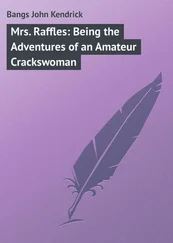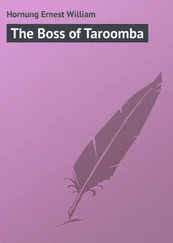Ernest Hornung - Further Adventures of the amateur Cracksman
Здесь есть возможность читать онлайн «Ernest Hornung - Further Adventures of the amateur Cracksman» весь текст электронной книги совершенно бесплатно (целиком полную версию без сокращений). В некоторых случаях можно слушать аудио, скачать через торрент в формате fb2 и присутствует краткое содержание. Жанр: Классический детектив, на английском языке. Описание произведения, (предисловие) а так же отзывы посетителей доступны на портале библиотеки ЛибКат.
- Название:Further Adventures of the amateur Cracksman
- Автор:
- Жанр:
- Год:неизвестен
- ISBN:нет данных
- Рейтинг книги:4 / 5. Голосов: 1
-
Избранное:Добавить в избранное
- Отзывы:
-
Ваша оценка:
- 80
- 1
- 2
- 3
- 4
- 5
Further Adventures of the amateur Cracksman: краткое содержание, описание и аннотация
Предлагаем к чтению аннотацию, описание, краткое содержание или предисловие (зависит от того, что написал сам автор книги «Further Adventures of the amateur Cracksman»). Если вы не нашли необходимую информацию о книге — напишите в комментариях, мы постараемся отыскать её.
Further Adventures of the amateur Cracksman — читать онлайн бесплатно полную книгу (весь текст) целиком
Ниже представлен текст книги, разбитый по страницам. Система сохранения места последней прочитанной страницы, позволяет с удобством читать онлайн бесплатно книгу «Further Adventures of the amateur Cracksman», без необходимости каждый раз заново искать на чём Вы остановились. Поставьте закладку, и сможете в любой момент перейти на страницу, на которой закончили чтение.
Интервал:
Закладка:
"And I thought you said Bow Street !" said I. "Are you coming straight down to Richmond with me?"
"I may as well," said Raffles, "though I did mean to get my kit first, so as to start in fair and square as the long-lost brother from the bush. That's why I hadn't written. The function was a day later than I calculated. I was going to write to-night."
"But what are we to do?" said I, hesitating when he had paid the cab. "I have been playing the colonies for all they are worth!"
"Oh, I've lost my luggage," said he, "or a wave came into my cabin and spoilt every stitch, or I had nothing fit to bring ashore. We'll settle that in the train."
THE WRONG HOUSE
My brother Ralph, who now lived with me on the edge of Ham Common, had come home from Australia with a curious affection of the eyes, due to long exposure to the glare out there, and necessitating the use of clouded spectacles in the open air. He had not the rich complexion of the typical colonist, being indeed peculiarly pale, but it appeared that he had been confined to his berth for the greater part of the voyage, while his prematurely gray hair was sufficient proof that the rigors of bush life had at last undermined an originally tough constitution. Our landlady, who spoilt my brother from the first, was much concerned on his behalf, and wished to call in the local doctor; but Ralph said dreadful things about the profession, and quite frightened the good woman by arbitrarily forbidding her ever to let a doctor inside her door. I had to apologize to her for the painful prejudices and violent language of "these colonists," but the old soul was easily mollified. She had fallen in love with my brother at first sight, and she never could do too much for him. It was owing to our landlady that I took to calling him Ralph, for the first time in our lives, on her beginning to speak of and to him as "Mr. Raffles."
"This won't do," said he to me. "It's a name that sticks."
"It must be my fault! She must have heard it from me," said I self-reproachfully.
"You must tell her it's the short for Ralph."
"But it's longer."
"It's the short," said he; "and you've got to tell her so."
Henceforth I heard as much of "Mr. Ralph," his likes and dislikes, what he would fancy and what he would not, and oh, what a dear gentleman he was, that I often remembered to say "Ralph, old chap," myself.
It was an ideal cottage, as I said when I found it, and in it our delicate man became rapidly robust. Not that the air was also ideal, for, when it was not raining, we had the same faithful mist from November to March. But it was something to Ralph to get any air at all, other than night-air, and the bicycle did the rest. We taught ourselves, and may I never forget our earlier rides, through and through Richmond Park when the afternoons were shortest, upon the incomparable Ripley Road when we gave a day to it. Raffles rode a Beeston Humber, a Royal Sunbeam was good enough for me, but he insisted on our both having Dunlop tires.
"They seem the most popular brand. I had my eye on the road all the way from Ripley to Cobham, and there were more Dunlop marks than any other kind. Bless you, yes, they all leave their special tracks, and we don't want ours to be extra special; the Dunlop's like a rattlesnake, and the Palmer leaves telegraph-wires, but surely the serpent is more in our line."
That was the winter when there were so many burglaries in the Thames Valley from Richmond upward. It was said that the thieves used bicycles in every case, but what is not said? They were sometimes on foot to my knowledge, and we took a great interest in the series, or rather sequence of successful crimes. Raffles would often get his devoted old lady to read him the latest local accounts, while I was busy with my writing (much I wrote) in my own room. We even rode out by night ourselves, to see if we could not get on the tracks of the thieves, and never did we fail to find hot coffee on the hob for our return. We had indeed fallen upon our feet. Also, the misty nights might have been made for the thieves. But their success was not so consistent, and never so enormous as people said, especially the sufferers, who lost more valuables than they had ever been known to possess. Failure was often the caitiff's portion, and disaster once; owing, ironically enough, to that very mist which should have served them. But as I am going to tell the story with some particularity, and perhaps some gusto, you will see why who read.
The right house stood on high ground near the river, with quite a drive (in at one gate and out at the other) sweeping past the steps. Between the two gates was a half-moon of shrubs, to the left of the steps a conservatory, and to their right the walk leading to the tradesmen's entrance and the back premises; here also was the pantry window, of which more anon. The right house was the residence of an opulent stockbroker who wore a heavy watch-chain and seemed fair game. There would have been two objections to it had I been the stockbroker. The house was one of a row, though a goodly row, and an army-crammer had established himself next door. There is a type of such institutions in the suburbs; the youths go about in knickerbockers, smoking pipes, except on Saturday nights, when they lead each other home from the last train. It was none of our business to spy upon these boys, but their manners and customs fell within the field of observation. And we did not choose the night upon which the whole row was likely to be kept awake.
The night that we did choose was as misty as even the Thames Valley is capable of making them. Raffles smeared vaseline upon the plated parts of his Beeston Humber before starting, and our dear landlady cosseted us both, and prayed we might see nothing of the nasty burglars, not denying as the reward would be very handy to them that got it, to say nothing of the honor and glory. We had promised her a liberal perquisite in the event of our success, but she must not give other cyclists our idea by mentioning it to a soul. It was about midnight when we cycled through Kingston to Surbiton, having trundled our machines across Ham Fields, mournful in the mist as those by Acheron, and so over Teddington Bridge .
I often wonder why the pantry window is the vulnerable point of nine houses out of ten. This house of ours was almost the tenth, for the window in question had bars of sorts, but not the right sort. The only bars that Raffles allowed to beat him were the kind that are let into the stone outside; those fixed within are merely screwed to the woodwork, and you can unscrew as many as necessary if you take the trouble and have the time. Barred windows are usually devoid of other fasteners worthy the name; this one was no exception to that foolish rule, and a push with the pen-knife did its business. I am giving householders some valuable hints, and perhaps deserving a good mark from the critics. These, in any case, are the points that I would see to, were I a rich stockbroker in a riverside suburb. In giving good advice, however, I should not have omitted to say that we had left our machines in the semi-circular shrubbery in front, or that Raffles had most ingeniously fitted our lamps with dark slides, which enabled us to leave them burning.
It proved sufficient to unscrew the bars at the bottom only, and then to wrench them to either side. Neither of us had grown stout with advancing years, and in a few minutes we both had wormed through into the sink, and thence to the floor. It was not an absolutely noiseless process, but once in the pantry we were mice, and no longer blind mice. There was a gas-bracket, but we did not meddle with that. Raffles went armed these nights with a better light than gas; if it were not immoral, I might recommend a dark-lantern which was more or less his patent. It was that handy invention, the electric torch, fitted by Raffles with a dark hood to fulfil the functions of a slide. I had held it through the bars while he undid the screws, and now he held it to the keyhole, in which a key was turned upon the other side.
Читать дальшеИнтервал:
Закладка:
Похожие книги на «Further Adventures of the amateur Cracksman»
Представляем Вашему вниманию похожие книги на «Further Adventures of the amateur Cracksman» списком для выбора. Мы отобрали схожую по названию и смыслу литературу в надежде предоставить читателям больше вариантов отыскать новые, интересные, ещё непрочитанные произведения.
Обсуждение, отзывы о книге «Further Adventures of the amateur Cracksman» и просто собственные мнения читателей. Оставьте ваши комментарии, напишите, что Вы думаете о произведении, его смысле или главных героях. Укажите что конкретно понравилось, а что нет, и почему Вы так считаете.










